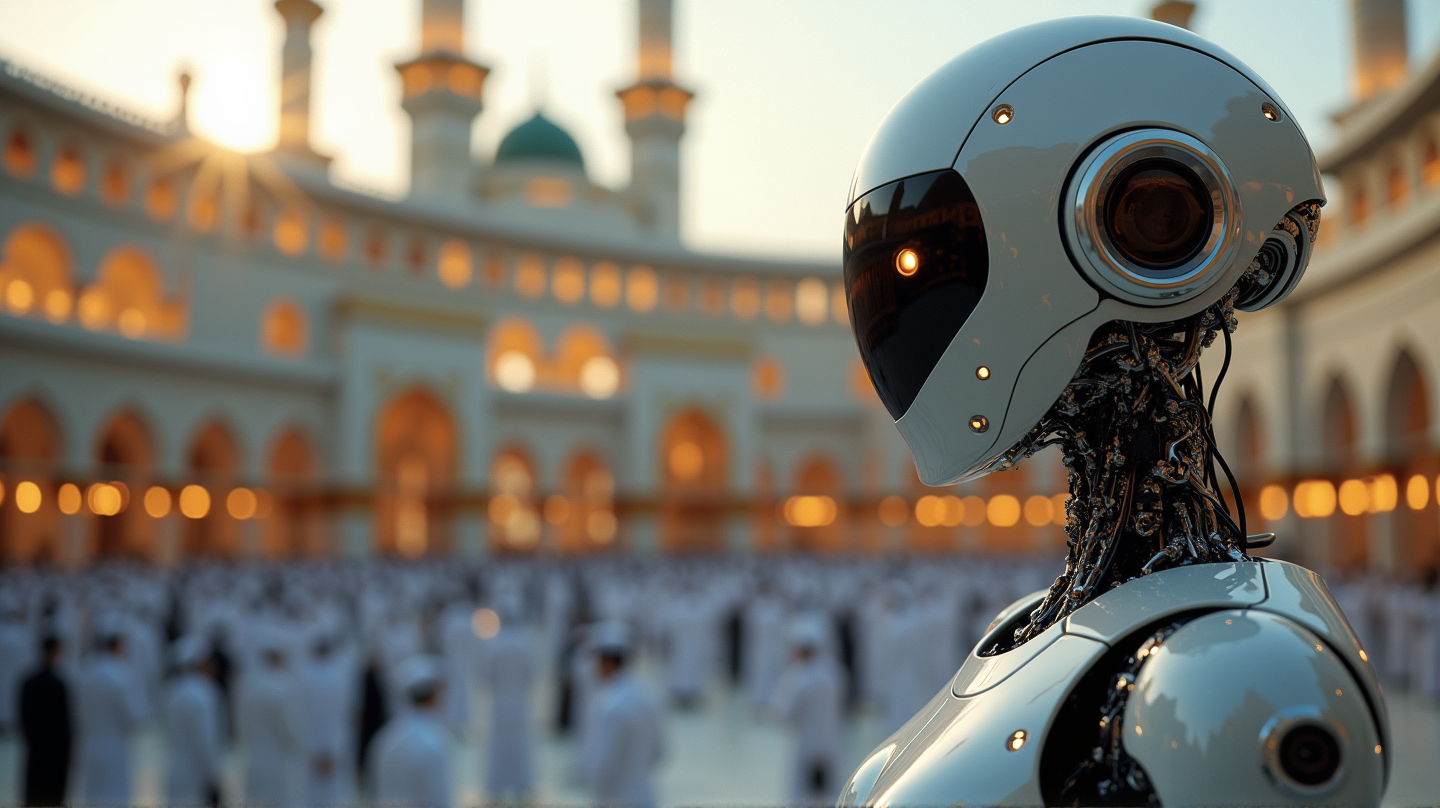In a groundbreaking move, Saudi Arabia is harnessing the power of artificial intelligence (AI) to elevate the experience of the Hajj pilgrimage for millions of Muslims worldwide. These technological innovations, positioned at the heart of Makkah, reflect the country’s commitment to integrating advanced systems into religious practices.
Cutting-Edge Technology Meets Spiritual Journey
In its ongoing quest to enhance pilgrimage safety and efficiency, Saudi Arabia has introduced second-generation “Manarat Al-Haramain” robots. Positioned strategically within the Grand Mosque and its courtyards, these AI-powered robots offer real-time religious guidance in 15 languages. As stated in Bernama, this initiative signifies a shift towards embedding smart solutions within the deeply spiritual framework of Hajj.
AI in Religious Communication
One of the core aims of deploying such technology is to bridge gaps between diverse cultures and languages. By improving communication between religious institutions and worshippers from varied backgrounds, AI serves as a universal tool for spreading guidance and enlightenment during these spiritual rites.
Enhancements Beyond Religious Services
Beyond religious guidance, AI is also making strides in healthcare logistics. At King Abdullah Medical City in Makkah, a surgical robot now assists in performing complex medical procedures. This innovation, introduced by Health Minister Fahd Al-Jalajel, enhances surgical precision, especially crucial during the busy Hajj season.
The Role of Zamzam Water Robots
Introduced during the COVID-19 pandemic, the Zamzam Water Robot is another brilliant example of technology enhancing the pilgrimage experience. This robot efficiently distributes bottled Zamzam water without human contact, reflecting heightened safety and operational standards. The Presidency’s dedication to these innovations has earned the robot both patent rights and European CE certification.
Integrating Vision 2030 into Hajj
These technological strides align with Saudi Arabia’s Vision 2030, aiming to lead globally in religious infrastructure and digital services. By embedding AI and robotics into the Hajj experience, the Kingdom is not only modernizing its holy sites but also setting a precedent for the future of religious pilgrimages worldwide.
Could this be the future of pilgrimages as we know them? The seamless integration of AI into traditional practices may well be a turning point, redefining how spiritual journeys are experienced.
